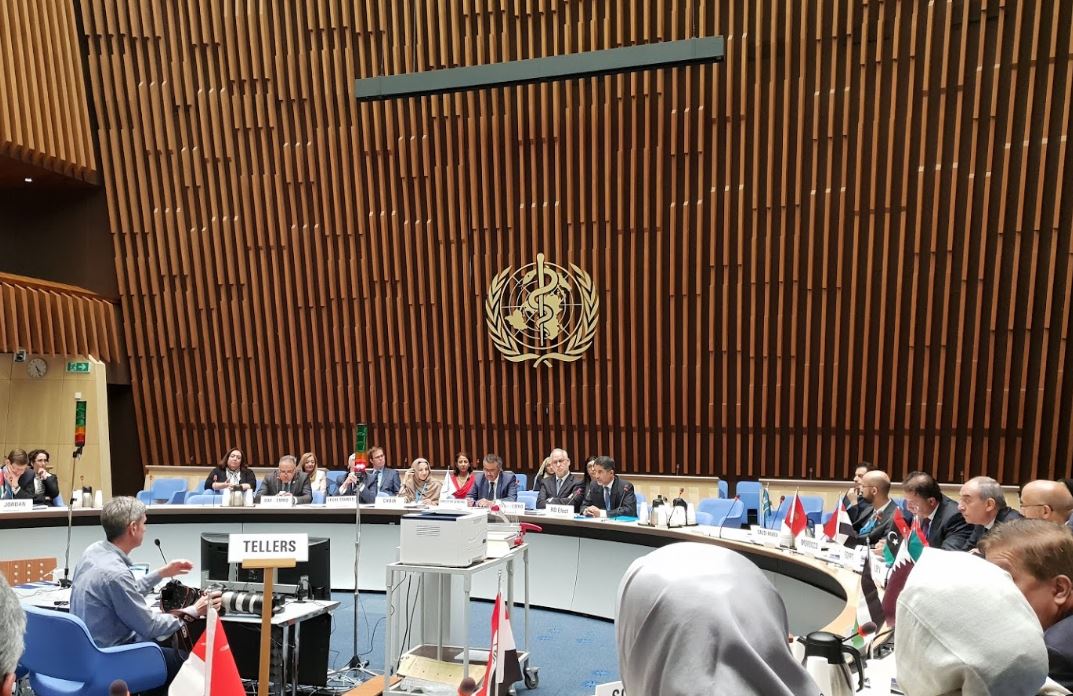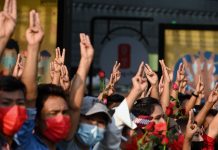
The US withdrawal from the World Health Organization (WHO) amidst the coronavirus pandemic is “disappointing” and “inexplicable,” according to the World Health Organization’s special envoy for the coronavirus.
“We’ve now got the biggest communicable disease challenge that I’ve ever known, and we really need every single nation working together on it, including the U.S.,” Dr. David Nabarro said during an interview on CNBC’s “Street Signs Asia” on Monday.
President Donald Trump announced it is cutting US ties with the WHO.
“We have detailed the reforms that it must make and engage with them directly, but they have refused to act because they have failed to make the requested and greatly needed reforms,” Trump said in a speech in the White House Rose Garden.
“We will be today terminating our relationship with the World Health Organisation and redirecting those funds to other worldwide and deserving urgent global public health needs.”
The support and leadership of the US has been beneficial for the WHO for years, said Nabarro, an envoy on COVID-19 for the WHO Director-General.
If the US government would halt its commitments to the WHO, it would be a “really strange thing to do right in the middle of fighting the pandemic,” Nabarro added.
“It’s as though you’re in the middle of fighting a forest fire and suddenly 15% of the fire trucks are taken away just at the time when you need them the most,” he said.
The US remains the biggest financier of WHO. Its membership dues cost about $450m, with voluntary contributions for specific programs.
Removing the world’s largest economy from the global health agency means the support for WHO would fall on the remaining 193 countries that still support the WHO to “work out how to plug the gap,” Nabarro said.
He hopes that Americans can convince Trump to reevaluate his announcement, given Washington’s contribution to response efforts in previous outbreaks such as polio, HIV, Ebola, and smallpox.
The European Union already released a statement asking the US to rethink its decision to depart from the WHO, Reuters reported.
Absolute unity
Nabarro stressed that the pandemic has just started, and several countries are beginning to face challenges.
He believes that the countries should work together “absolutely in unity” to assist people in addressing it, “otherwise the consequences could be far worse,” he said.
“The one thing the general public wants is united efforts by everyone — bringing together the best scientists, the best leaders to work on this issue together,” he noted.
“Of course, there will be questions about why on earth we have this terrible pandemic — they should be asked and they should be dealt with — but later, when we’ve got on top of it,” Nabarro said.
He acknowledges the need to have detailed evaluations or after action reviews following outbreaks. “But we really do ask all of those who are concerned about world health not to do a forensic examination right now, not to withdraw support right now.”
Meanwhile, Amanda Glassman, the executive-vice president of the Centre for Global Development, said that the US had broad ties to the WHO. She noted that the move of the US could affect its influence on global health research and policymaking.
“We have very deep and long relationships with the WHO as the space where we coordinate global health policy,” Glassman said. “I think it’s totally inefficient to do it in a bilateral manner.”






